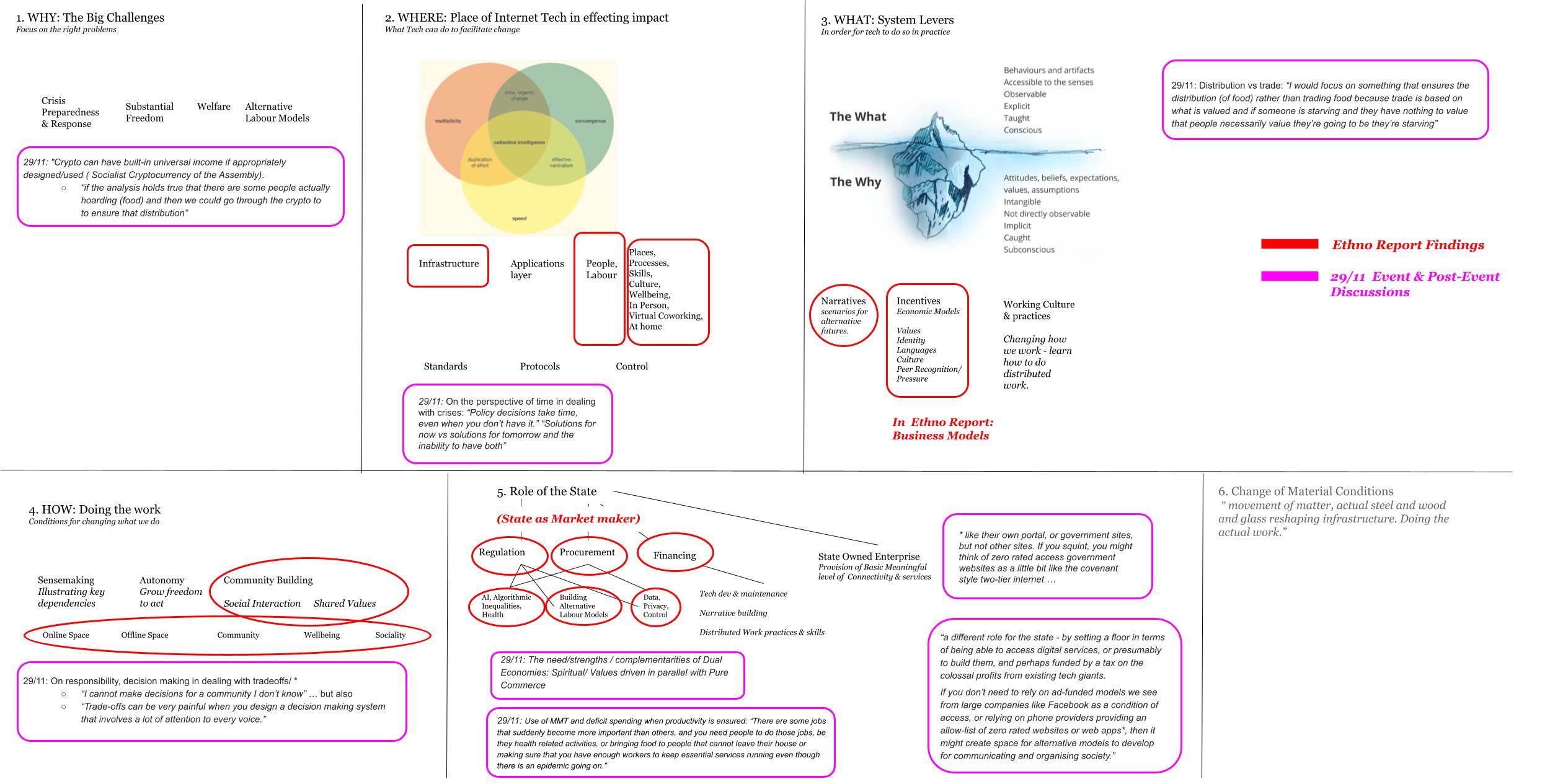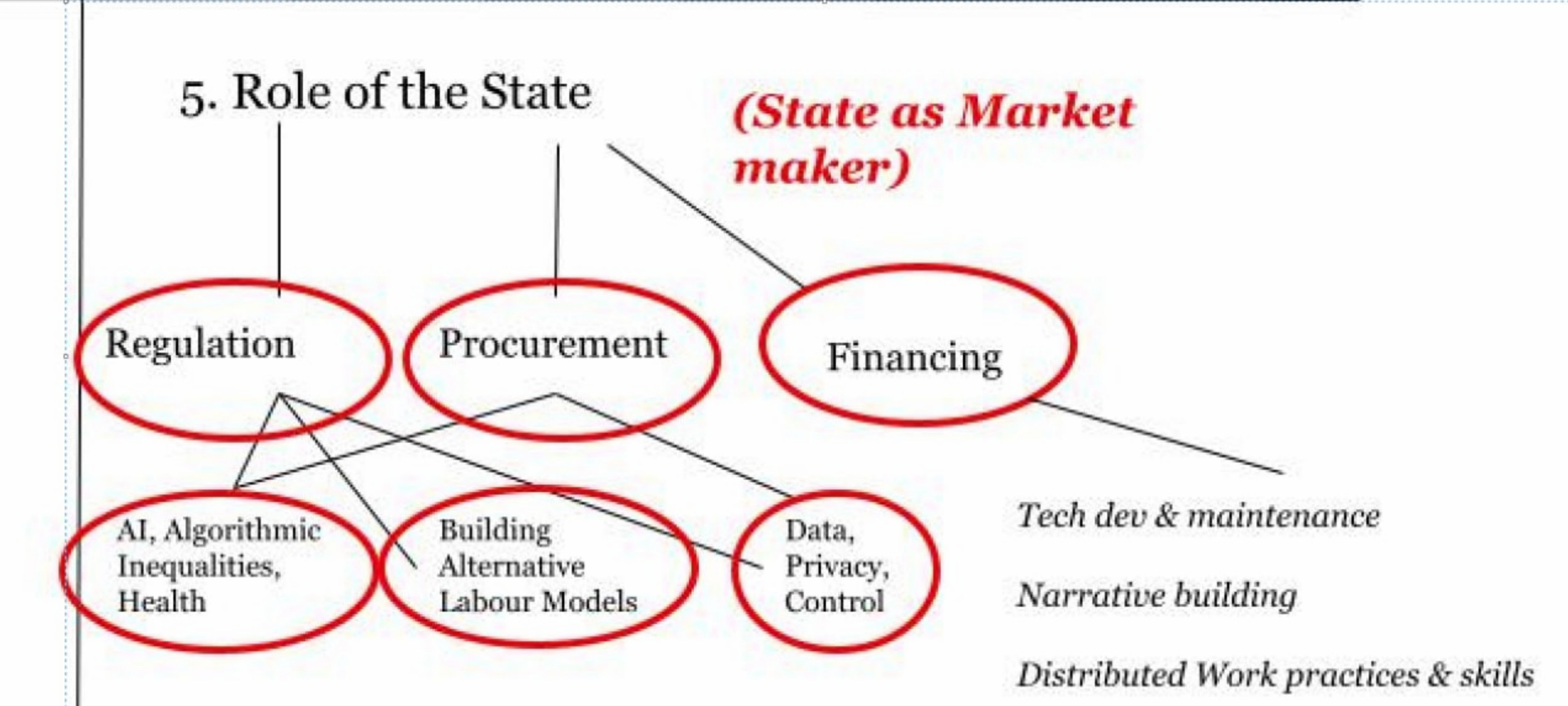Hi everyone, we are in the process of writing a series of articles synthesising the insights from the event, against the backdrop of what we have learned from our 3 year consultation (the full report is a circa 100 pages long).
I’m posting below an overview in the form of a “map” followed by short explanations. Each section = an article where we summarise what we have learned about that specific topic or question.
This is really challenging, and Im at the edge of my brain capacity/ knowledge so any input welcome.

1. Understanding the Problems that matter: Challenges which truly affect people’s lives where internet tech currently plays a big (often negative) role.
These cannot be fixed by any one actor alone and certainly not with "there’s an app for that’ - however they are currently being adversely affected by choices made by technologists and institutional actors.
Findings of European Environmental Agency + OECD = Way forward is first we rethink economic models. And then look at role of tech within these models.
Because :
- Decoupling is debunked
- Limited effects of technologies
- limits to circularity
- …Biggest effects in terms of narratives and paradigms
2. Role of technology: Seeing through the hype.
Technologists and policymakers can make a big difference if we
- build a shared, realistic understanding of how societal change actually does/can happen.
- adopt a culture of humility wrt to the role of tech as small part of complex adaptive systems.
- listen to/ amplify/ align with/ support/ work of other groups. Eg civil rights/political activists, at risk groups, medical practitioners, public administrators, artists, small scale entrepreneurs (vSMEs and SMEs).
3. Creating conditions for change: Seeing where focused efforts can unblock obstacles to change
Our ability to make different choices is constrained by a number of factors - many of which we are not aware of, do not consider to be part of our tech-related work, or feel insurmountable/ out of our control. How to approach/ relate to this?
4. Actionable-right-now Improvements at level of individuals, teams and organisations
These were identified as fundamental to affecting real change. And can be tackled by different people in different contexts also because they improve our own professional and personal lives in a direct way.
5. What Institutional actors can do
These are recommendations for what people working around or in public administrations and political movements can/should push for.
